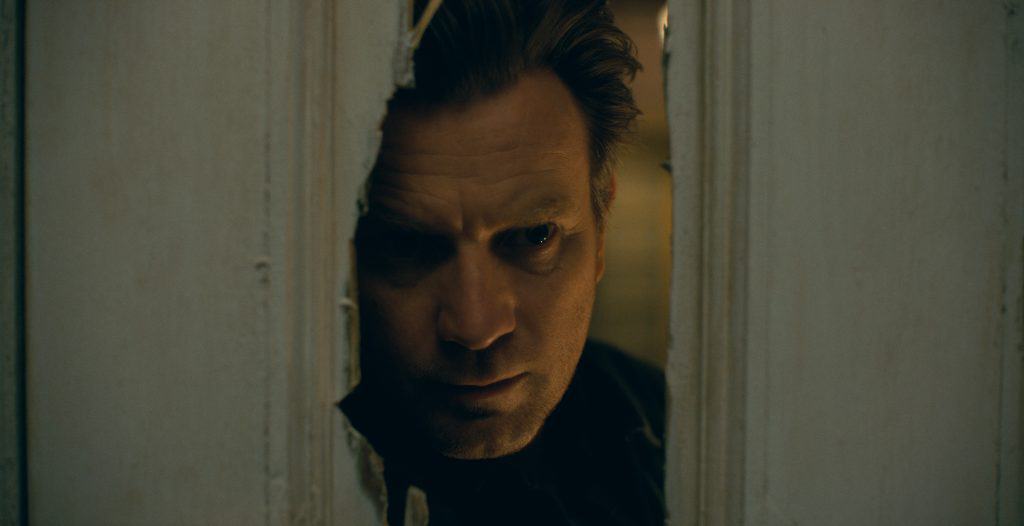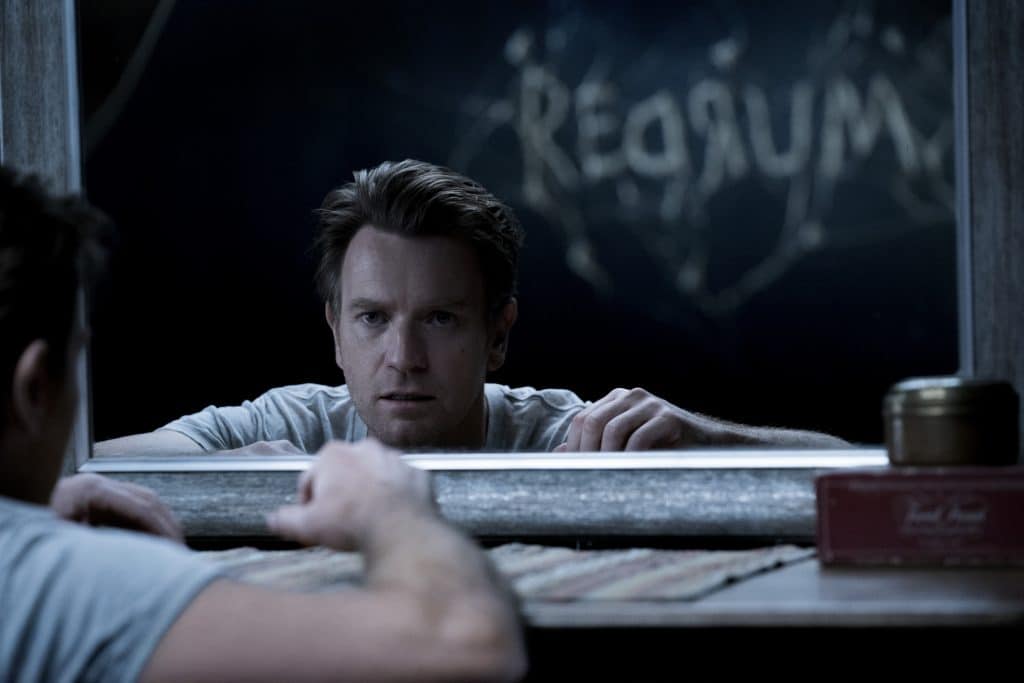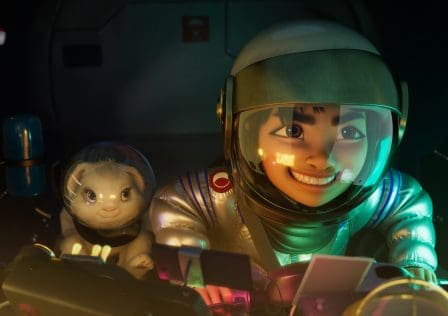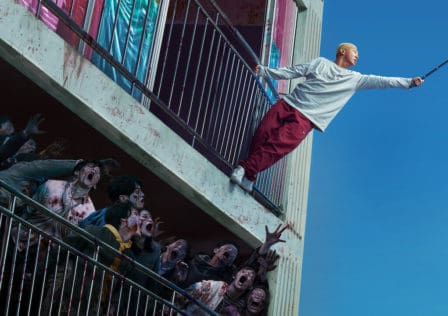There will be a number of people who will find Doctor Sleep (the movie, that is) to be frustrating and disappointing. I understand why. I suppose any movie positioning itself as a sequel to Stanley Kubrick’s The Shining, adapted from the Stephen King novel of the same name, can’t avoid being a let-down. That’s unless Kubrick himself manifests within the depths of the Eltree Studio in Hertfordshire, Steadicam in hand to chase the tush of an adult Danny Torrance. Perhaps there will be a psychic ambitious enough to try.
But the real reason is because Doctor Sleep – itself an adaptation of Stephen King’s long-in-the-making sequel – is very much antithetical to Kubrick’s movie. The Shining is slow and methodical, masterfully using space, music and nothingness to build isolation and suspense. It’s a deliberately vague film, which unexplained mysteries add to its underlying terror while breeding a thousand theories and readings that range from thoughtful to weird.
In contrast, Doctor Sleep is about answers. The movie explains many things, including things from The Shining. For fans who prefer the measured obfuscation of Kubrick’s movie, Doctor Sleep can feel like an axe hacking through a door.

But mystery and vagueness can’t truly exist in Doctor Sleep, because this movie is as much about answers as it is about a man seeking answers. It’s about him trying to understand – and coming to terms with – a traumatising past.
The aforementioned man is Danny Torrance (Ewan McGregor), the boy from the original movie. He has grown up in the shadow of his unhinged and abusive father, and is similarly alcoholic and aimless. The ghosts of his past still haunts him, figuratively and literally. But thanks to his ability to Shine (Stephen King-speak for telepathic, telekinetic powers), Danny is at least able to find a modicum of peace helping dying patients peacefully pass on, earning him the nickname Doctor Sleep (also a nice callback to Danny’s old nickname, Doc).
Nights are about to become sleepless for him, however. His power puts him in telepathic contact with another Shining – a teenage girl named Abra (an excellent Kyliegh Curran). That’s in itself not a problem, except that Abra becomes the target of a semi-immortal group called the True Knot, led by the deadly Rose the Hat (Rebecca Ferguson, having tremendous fun). The group consumes Shining children in order to prolong their lives. To help Abra, Danny will need to confront his past fears, and perhaps tap into something long locked in his mind.
Doctor Sleep is less a horror movie and more a supernatural thriller, though it’s not without some scares. Director Mike Flanagan, whose critically-acclaimed horror repertoire ranges from Oculus to the truly spectacular The Haunting of Hill House series on Netflix, is more than capable to conjure effectively frightful moments. But what truly (ahem) shines here is Flanagan’s knack for using horror to explore complicated familial pasts.
And there’s not a more complicated past than Danny Torrance’s, who spends the movie unwittingly treading on his father’s footsteps (having done so literally in The Shining, for those who remember the maze sequence at the end). Asking him to comprehend his deranged dad is no easy feat, but the true underlying terror for Danny is the possibility of turning into his own unkind father, now that he has to care for Abra. This is explored with a surprising amount of poignancy, which contrasts the cold, oppressive nature of Kubrick’s The Shining.
The past is a main theme in Doctor Sleep. The filmmaker explored this not just through Danny’s own retrospection, but also how the movie juxtaposes Abra and the True Knot. The antagonists quite literally snuff raw potential — Shining children — in a bid to prolong their own lives while fearful of the future (or death). Danny’s relationship with Abra is more of guidance, and of future generations learning from past legacies.
Doctor Sleep is not without its issues. It has a hefty length (it’s two and a half hours long and bad for small bladders), which is peppered with long dialogue that feels more like a reading from King’s novel than a script. Some scenes can’t help but appear rather goofy, as with most of King adaptations.
But we can’t ignore that this is an overwhelming undertaking for Flanagan, who not only had to create a sequel to one of the greatest horror movies ever made, but also ensure that it stays true to Stephen King’s vision. What complicated things further is that King famously hates Kubrick’s film, to the point where he produced his own version. Getting the blessings from both King and Kubrick’s estate was as anxiety-inducing as entering Room 237.
But I’d say that Flanagan managed to achieve equilibrium. The result is a movie that homages and expands on Kubrick’s movie, while maintaining King’s humanity and warmth. Most amazingly, however, Doctor Sleep asks that we re-examine the original film. Like Danny’s trek through his father’s troubled life, the movie tasks us to confront The Shining from a single, truthful perspective.
It asks that we overlook the original film’s possible allusion to the massacre of Native Americans, or the holocaust. Instead, our attention should focus on what The Shining explicitly is – the story of a man who is increasingly isolated from his family and is unable to defeat his own demons, ultimately failing to escape himself (I like to believe that his mind is represented by the Overlook Hotel’s maze, and Doctor Sleep implies as much). It’s about a man unable to move on. A man with no future.
And just as much as it is about acknowledging and paying homage to the past, Doctor Sleep tells you that there’s value and potential in the future. I like that. Or perhaps I like the idea that sequels can become another way to view the original.
Also published on Medium.

makes it a life goal to annoy everyone with random Disney trivia. When he’s not staring at a screen or holding a controller of some sort, he is thinking about curry noodles. Like right now.



